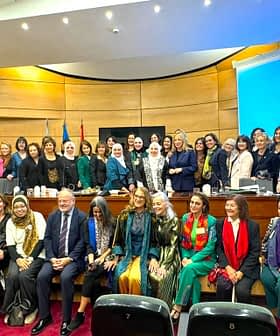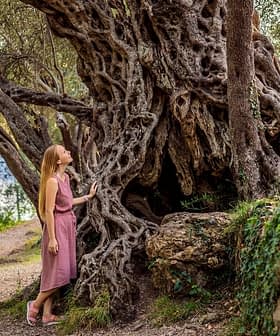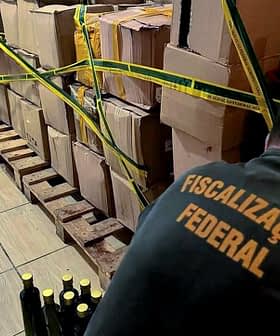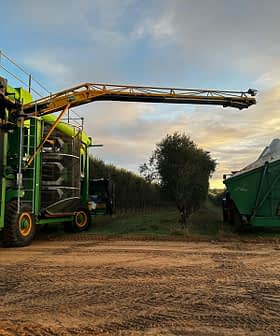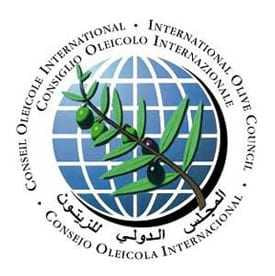
Back in January when Australia and New Zealand proposed new olive oil standards that departed from those established by the International Olive Council, the IOC issued a statement calling the measure a possible “barrier to trade” while recommending a reconsideration of the move.
The statement, titled “IOC Comments on the Draft Australian/New Zealand Standard Olive Oils and Olive Pomace Oils,” laid out about twenty “discrepancies” that included definitions, olive oil categories and testing methods in the proposed guidelines that differed with, or did not exist in the IOC standards. “It would be expedient,” the IOC said, “for the Australian/New Zealand draft standard to be re-examined.”
So last month, when the new voluntary rules were adopted by Standards Australia (New Zealand decided not to sign on) eyes turned to the IOC for what was expected to be a sharp rebuke.
That rebuke has arrived. In a copy of a formal memorandum obtained by Olive Oil Times and sent by the Executive Secretariat of the Council last week to Standards Australia, Codex Alimentarius and Australia’s agriculture and foreign affairs ministries, the IOC laid out what it sees as a troubling development.
While Australia is not a member of the intergovernmental organization, it nevertheless takes part in IOC activities and is kept “permanently informed about its work,” begins the memorandum.
Calling the development of definitions and analytical characteristics included in trade standards “one of the most significant regulatory tasks” of the IOC, the ducument proceeds to outline efforts undertaken by the United Nations sanctioned organization under that mandate.
See Also:IOC Memorandum
One such initiative is the yearly meeting of the IOC group of expert chemists from around the world, including Australia, to scrutinize and improve testing methods (that meeting will be held next week in Madrid, and one of the topics of discussion will be the Australian standards, according to a participant familiar with the agenda). Changes to the international standards are made, the IOC explains in the “light of scientific advances,” and with broad agreement, to enhance olive oil quality and “ensure transparency in international markets.”
Working with international organizations including Codex Alimentarius, the International Organization for Standardization (ISO) and the World Trade Organization, the IOC has made “enormous efforts” to achieve harmonization with those bodies toward consumer health protection and fair trading. In that spirit, the IOC letter explains, it has also worked with Australian associations to implement a quality control program to “undertake product quality control at recognized laboratories using updated methods.”
Those methods would not have included measuring pyropheophytins or diglycerides — two limits determined in the new Australian guidelines and identified in the IOC memorandum as significant departures from the established international standard.. According to the American Oil Chemists’ Society, testing for pyropheophytins helps to detect thermally treated olive oils and to estimate the age of the oil, while 1,2‑diglycerides is a characteristic of fresh olive oil.
The IOC also argues that the Australian standard’s higher limits of campesterol, which can indicate the presence of seed oils, could result in more adulterated olive oil on the market if other restrictions are not adjusted accordingly. And Australia’s new product designation guidelines which, for example, disallow classifications such as “pure” and “light,” will confuse consumers and hinder trade.
The IOC note verbale, or diplomatic communication, closes by calling on the various organizations to help stop “unfair trading practices or potential trade barriers, to achieve more transparent trading, to combat fraud and to protect consumers through the harmonization and fulfillment of the international standards.”


